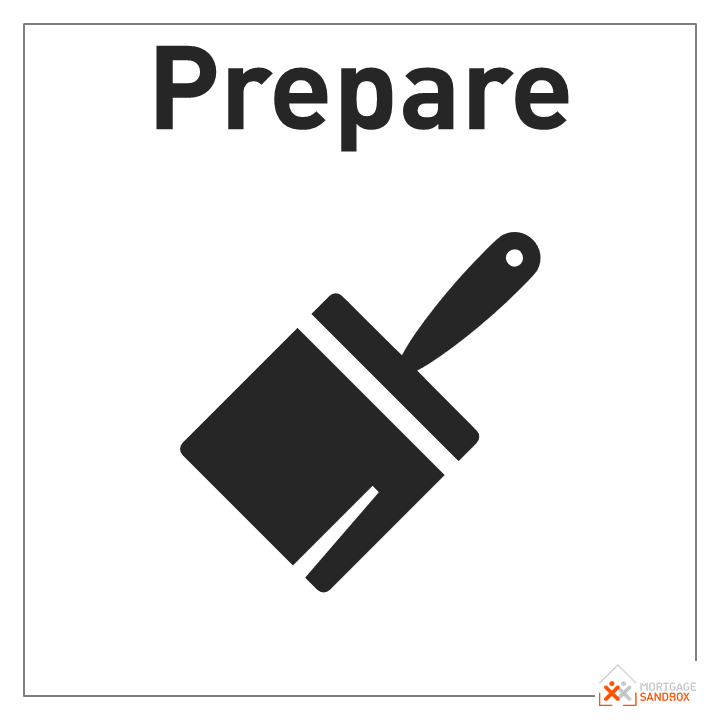8 Tips for HomeBuyers in a Falling Market
A weak or falling market is more volatile and unpredictable at times. A falling market is a property seller’s biggest fear, but it presents opportunities for interested buyers.
If you play your cards right, buying in these uncertain times may be beneficial for you. It all depends on your ability to make the critical decision to make an offer or walk away.
When the supply of listings begins to pile up, price rises tend to weaken or values fall. As a home buyer, this is excellent news.
A weak market can allow you to buy your dream home at a discounted price. Real estate investors, on the other hand, must be careful to build in a financial cushion, in case of a fall in rents, to ensure they stay sash flow positive. Here are 8 tips that will help you tackle a falling market.
# 1 Study the Market
Don’t just jump into the market because a headline tells you the ‘market is down’, you need to do your homework first.
Sometimes when they say the market is up or down, they’re talking about the number of homes purchase/sold, and other times they are revering to property values. Even with property values, you’ll need to understand the difference between the benchmark price, median, price and average price. They all provide very different information about the market.
Search online for listings in the area where you’re interested in buying. Get a feel for the prices at the high and low end of the price range. You may also want to convert these price ranges into dollars-per-livable-square-foot, so they are easier to compare.
You should also research the neighbourhood potential. Does the city have plans to add new amenities or rapid transit? Is a new shopping district of school opening nearby? These developments make it more likely that home values in the neighbourhood will recover more quickly in the future.
#2 Arrange your Finances
Realtors will want you to have a ballpark budget before they take you to see homes, so your first step is to get pre-approved for a mortgage. Have your mortgage broker or lender confirm that all of your sources of equity down payment are acceptable. Down payment rules have changed recently.
A mortgage pre-approval is approving you, the borrower, but it isn’t a final approval. Once you find a home and make an offer, the lender will have to finalize your pre-approval. If the home is in very poor condition or the condominium board is underfunded or poorly managed, then a lender may not provide their final approval.
Never make an offer without having all your financial matters sorted out. This way, you’re able to have more flexible closing dates and also your mortgage is more likely to be approved.
#3 Find a Great Agent
Once you've decided to buy a home and you have your finances in order, you need a competent and trusted advisor at your side.
Your Realtor is an essential partner in completing the purchase of the most valuable investment you will own. Since every real estate agent is a unique individual with different local knowledge, negotiation philosophies, and values, you may not work well with the first one that crosses your path. It is best if you find an agent who will work well with you and has a complementary working style.
Need a great local Realtor?
Our app matches you with local pre-screened, values-aligned agents.
#4 Fast Sales
Many Canadians are on the brink of insolvency. According to the CEO of the CMHC, 20 percent of mortgage holders could be deferring payments by September 2020. Borrowers can suspend their mortgage for a maximum of six months, and then they will need to resume payments. January 2021 is the month to watch. In October 2020, the people who deferred payments beginning April 2020 will be required to resume paying their mortgage. If they cannot, the bank will try for 90 days to collect payments or refinance the mortgage before declaring the mortgage ‘in-default’. So lenders will not begin legal proceedings to force the sale of most homes until the first half of 2021.
If would are employed in the market to buy, and you may come across a property where the owner is feeling pressure to sell quickly, this is a great opportunity. You’ll have the highest negotiating power in a market that has shifted closer to a buyer’s market where the seller is under stress.
The key to identifying these opportunities is to check if the home has been listed for several and whether it has had a few price reductions. Often, several price reductions in a few months suggest that the owner is motivated to sell quickly.
If you happen to find an opportunity like this, then you can make it work in your favour. You can ask the seller to include furniture, appliances, and fixtures to the deal. You may be able to get them to fully or partially cover some of your closing costs.
#5 Drive a Hard Bargain
An everlasting part of property sales, negotiations are almost always doable and beneficial. In a falling market, realtors want to sell as much as you want to buy. This means that most of them are more willing to negotiate prices in order to close a deal. However, you have to be smart about this. Know when to start negotiations and when to give up. After all, you do not want to lose this deal.
#6 Be Willing to Walk Away
No seller expects that you will pay the list price, so if you don’t negotiate you will be paying too much. It’s easy to get emotionally attached or feel the need to ‘win’ against competing offers, but don’t get carried away and push yourself to buy a home for more than the market value.
Set a budget for yourself, work with your Realtor to calculate the market value of the home you are making an offer to buy, and don’t offer an amount above these figures.
If you are don’t to reach a deal that you’re happy with, then walk away.
Remember that in a falling market, there will always be more opportunities next month.
#7 No Bidding Wars
Research has shown that blind auction bidding wars usually lead to a higher sale price. Blind auctions are bidding wars where the buyers are not allowed to know what their competitors are offering. In an open auction, you know that you only need to offer slightly more than the higher offer, but in a blind auction, you need to guess what the highest bidder may offer and try to beat it. Seller relators will often ‘talk-up’ the competing buyers by mentioning key phrases like ‘I think they’re foreign money’, ‘sounds like they may make a cash offer’, and ‘they were a young family who lives in a small condo, and it looked like the next kid is only a few months away’.
Bidding wars are a waste of time in a weak market. Prices are falling, so don’t try too hard to win every deal. Set a target price, offer a lower figure than the target, and negotiate toward it. If the seller refuses to counter-offer, then move on.
This is not a competition you have to win, but an opportunity to get great value that you don’t want to squander.
Stay away from bidding wars. Every month new listings and new opportunities will present themselves.
#8 Understand the Seller and the Property
See if you can get the backstory on the seller and the property. If possible, find out the owner’s motivation for selling the house.
Are they in a hurry?
Are there any problems with the home?
Has the owner been fined or reprimanded by the condominium board?
Perhaps the seller can’t make the mortgage payments?
Have they bought a new home and need to sell this one to complete their purchase?
If you understand the seller’s motivations, it may help you negotiate a better deal, or it may convince you to walk away and look for another home.
Good luck and good skill!
We hope these tips help you find a phenomenal home. Please try our app to help you find a great local mortgage broker and Realtor.
Like this post? Like us on Facebook for the next one in your feed.




